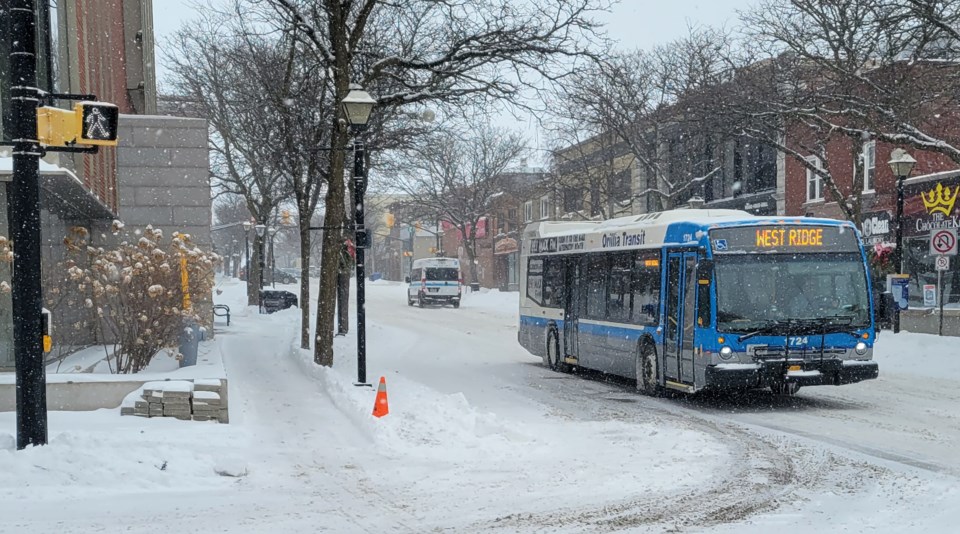OrilliaMatters welcomes letters to the editor at [email protected]. Please include your daytime phone number and address (for verification of authorship, not publication). The following letter is in response to the article titled, 'Mayor driving a new bid to reduce transit, lower taxes Monday', published Feb. 26.
I'll preface this note by disclosing that I am a former Orillian whose military career took him away to other places in Canada many years ago. That said, I still like to follow the news in my hometown as it keeps me connected to what is happening with the many family and friends I have there. So my following comment is as an outsider looking in and as such I am not fully informed about all of the issues and/or if my question has already been addressed and I'm simply ignorant of that fact.
So to the point. I've been following the transit service debate outlined in OrilliaMatters with some interest over the past few weeks. I can definitely appreciate the arguments both for and against reduction in service and the challenges faced by the city council in trying to balance tax burden with rider convenience.
Indeed, this problem is far from unique to Orillia and I have witnessed this very similar debate in virtually every community I have resided in across the country. That said, and the reason for this comment is, in all the debate I've read to date, the one option I haven't seen tabled is reducing service to an "on demand" option.
This is a service offered by many communities in Canada as an alternative to regularly scheduled service in non peak hours. Buses are geo-posted at strategic locations throughout the city that are simply on standby. When a rider needs service, they call a designated number and request to be picked up at a particular stop number and transported to a destination stop number. Simular to a taxi service, but limited strictly to predefined stops. This decreases the number of buses needed during those hours, reduces fuel costs and emissions, decreases vehicle wear and maintenance, etc. Conversely, it generally keeps service as convenient, and in some cases more convenient, for the rider. Although not perfect, I know it works quite well for most riders in the communities that I'm aware of that offer such service.
Again, perhaps this is an option that has been already reviewed and rejected by council, but if not, I would strongly recommend it be explored and tabled as an alternative option to service reduction. Food for thought from the outside looking in.
Dan Huffman
Spruce Grove, Alberta (former Orillian)



